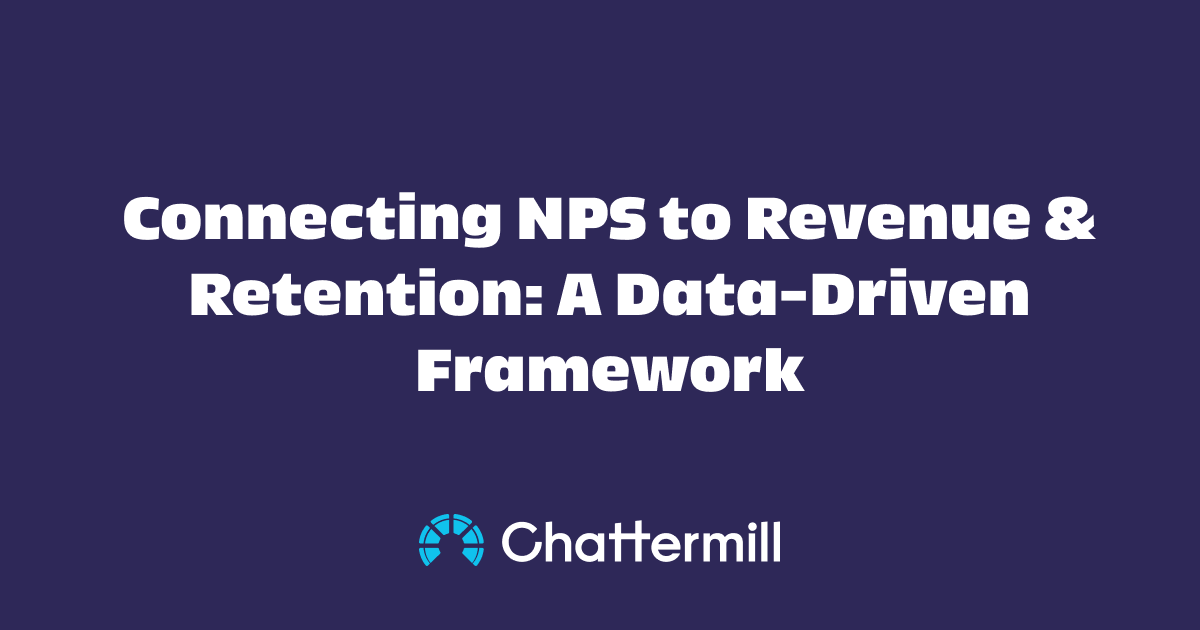We all know that being a better ally for women is critically important if we're going to make the world of work a more equitable place. This is especially the case for the tech industry, which is widely perceived as being a white, male-dominated environment.
True allyship takes great levels of work, of course. It's not short term, it requires active effort, and at times it can be uncomfortable. But we all need to put the work in.
Figuring out where to start can be hard, of course. So, to celebrate International Women's Day, I sat down with Chattermill's VP, Data & Research, Aji Ghose, to learn about his allyship journey and discuss some of the challenges he's faced along the way.
How has your journey to become an ally for women in tech gone?
The journey to being an ally for women in tech is an ongoing process that requires empathy, listening, and action.
I’ve been very fortunate to have a female leader and role model early in my career. Undoubtedly, this has been extremely helpful for committing to this journey to create a more inclusive and diverse culture as I embarked on my leadership path.
However, this early exposure to female tech leadership also blinded me during the early stages of my career to the prevalent challenges that women face in data science and tech more broadly.
My journey truly began once I acknowledged the gender bias that exists in recruitment, promotions, pay, and overall workplace culture.
Unsurprisingly, incredible female colleagues I’ve had the privilege to work with have supported and shaped my journey. Deeper conversations helped surface some unique challenges women face in male-dominated fields, such as unconscious bias, imposter syndrome and a lack of mentorship and networking opportunities.
Overall, I am happy with my journey but wish I had embarked on it earlier and been a more active participant in proactively helping my colleagues.
Have you experienced any situations where you had to question your own unconscious biases/actions? What did you learn from this?
Yes, on many occasions, the more you start understanding and appreciating the pervasiveness of unconscious biases, the more you think about and question your actions. For example, a while back, a Lead Data Scientist in my team, Georgia Harrison, helped identify (using AI!) unhelpful gendered language in a job description written by me, and this helped me re-write it in a more neutral tone! This example is very memorable because, at Chattermill, we are obsessed with human experience, language and AI, so being helped to reduce my bias through an AI is quite poetic.
Do you feel comfortable supporting your male colleagues to become better allies? Do you feel there is any taboo around this topic?
Absolutely, and I’ve not experienced much pushback or taboo around this. I always lead by example and openly call out occasions where I could have done better. Focusing on concrete behaviours and continuously pointing out improvement opportunities is helpful.
How have you supported women in your team?
It starts with listening and paying attention to all interactions but then proactively educating yourself and ultimately sharing that knowledge by recommending resources like books and articles on women's experiences in tech and, where relevant, ways to overcome imposter syndrome. Tomas Chamorro-Premuzic's book Why Do So Many Incompetent Men Become Leaders?: (And How to Fix It) is a great starting point.
Regarding specific actions, I've always tried my best to help women be heard, elevate their work (where needed) and amplify their organisational influence. Critically, my experience, supported by the social psychological literature, shows that women are less likely to talk and ask for salary increases and promotions. Therefore, it is doubly important for a leader to acknowledge this difference and consider it during formal performance reviews and in regular interactions.
How have you supported women in tech in other teams/departments, in the industry?
As a data science leader with one foot in academia, I mentor several women who will be part of the next generation of tech, be that in academia or industry. I find supporting women even before they start their careers in tech to be particularly helpful, and I've also heard from some of my mentees that it supports their professional growth. These interactions also help me develop and continue being an ally.
Over the years, especially on some social media platforms, I've unfortunately seen my colleagues and experienced female leaders or academics being attacked for expressing opinions or even just stating a generally accepted research finding.
For example, recently, one of the founding figures in the field of Natural Language Processing, with over 20 years of experience and a Professor of NLP, was told she shouldn't discuss complex NLP science. In these contexts, I try to amplify women's voices in tech.
It's a sad reality I have to do this for women far more qualified and experienced than me, but it always astonishes me that I can say the same thing and no one tries to undermine me.
However, as someone naturally non-confrontational, this requires a fair bit of courage and energy, so it is a work in progress!
What do you think needs to happen to improve equity for women in tech?
The nature of gender bias in tech is multifaceted. For example, gender bias and discrimination must be addressed directly during hiring, pay and promotion decisions. Promoting work-life balance and ensuring flexibility can also support women with caregiving responsibilities. Building an inclusive culture that actively shuns the 'brogrammer' mentality is also highly desirable.
Lastly, in the words of Jessica Bateman, closing the tech gender gap starts in childhood. There is a pipeline issue regarding women in tech, influenced by factors like unequal pay, culture, and lack of networking opportunities that fail to attract women to tech careers.
However, subjects like computer science, engineering and mathematics also need to attract and excite more girls as early as possible. The wider community and popular culture should strive to debunk toxic myths about the loner genius nerd.
We must tackle gender bias head-on and foster a culture of inclusion while nurturing the pipeline of girls in tech from childhood to create a more inviting tech industry for women.


.avif)

.png)










